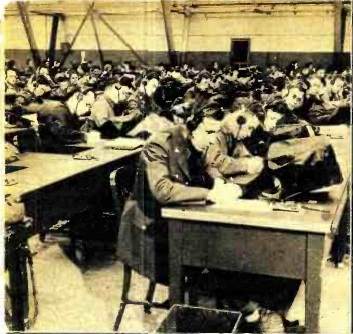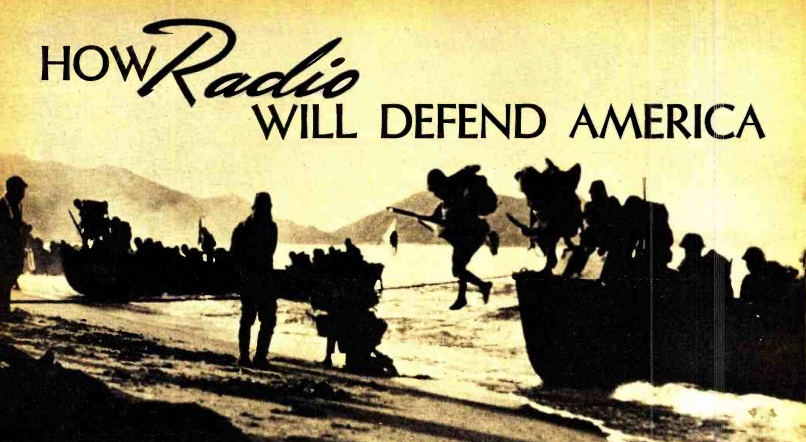On this date seventy five years ago today, October 18, 1941, less than two months before Pearl Harbor, Radio Guide magazine told all the ways that radio would defend America. The author, an army officer who had previously served as an editor of the magazine, started by saying that the bombers would come first, make no mistake about it. They would do it, unless radio prevented them, as one of the nation’s first line defenses. He noted that the shores were ringed with listening stations on our territory, on distant islands and ships at sea, and aboard blimps above the ocean. One of those stations would see them coming, and radio would carry the message to commanders whose duty it was to defend our shores.
If enemies did get through, then “radio must do for America what it failed to do for France; it must tell Americans where to go and by what routes. When areas need to be evacuated, radio must instruct automobilists and truck-drivers to use certain roads and highways. The Army has first claim on the others. Indeed, it may be a part of one’s preparedness to keep his radio continuously tuned in. No other means can tell the public so quickly of threatened danger.”
Another aspect of national preparedness was monitoring foreign shortwave broadcasts. “Would you think, for example, that by listening to what Germans are telling Americans, both in North and South America, you could learn what Germany may do next? Well, you can. Even now German short-wave stations are talking to us at all hours. Each twenty-four hours they are sending us thirty thousand words of trickery and deceit. By following it for month after month we have learned that it assumes a pattern that is visible to experts. Our own Federal Communications Commission hires such experts and many others besides to listen to all foreign language broadcasts. Stations in Oregon, Texas, Maryland and Puerto Rico hear all broadcasts directed to this country and to South America. They make recordings of these broadcasts, turn them over to translators, then to analysts, then to psychologists. Result: The American government was warned ahead of time that Japan was going to occupy Indo-China. Germany’s attack on Russia was predicted within a few days.”

Air Corps radio operators. “A few months ago many of them were ‘hams’ you heard on short waves. Today they’re learning everything from signal codes to radio night-fighting technique.”
The article also noted how broadcasting had served the public by providing information and quieting rumors. It concluded by noting that in peace, Americans had used radio better than any other nation. “We have more stations, more receivers, more artists, more technicians, more listeners. In war, if it comes, we shall also use radio best–there can be no doubt of that–and employ its multitude of services in order that a complete and glorious victory may quickly be ours.”

